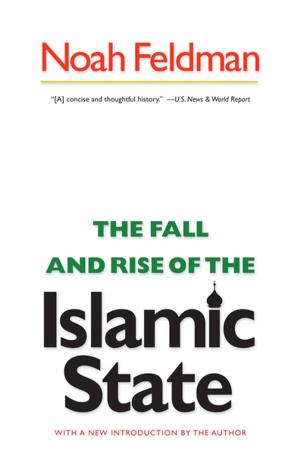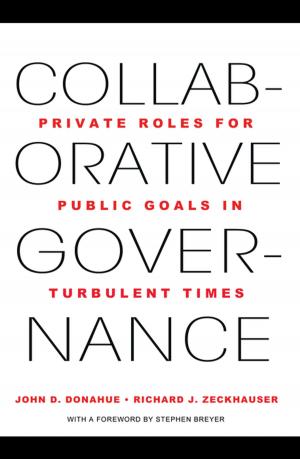The Weimar Century
German Émigrés and the Ideological Foundations of the Cold War
Nonfiction, History, Germany, Modern, 20th Century| Author: | Udi Greenberg | ISBN: | 9781400852390 |
| Publisher: | Princeton University Press | Publication: | January 4, 2015 |
| Imprint: | Princeton University Press | Language: | English |
| Author: | Udi Greenberg |
| ISBN: | 9781400852390 |
| Publisher: | Princeton University Press |
| Publication: | January 4, 2015 |
| Imprint: | Princeton University Press |
| Language: | English |
The Weimar Century reveals the origins of two dramatic events: Germany's post–World War II transformation from a racist dictatorship to a liberal democracy, and the ideological genesis of the Cold War. Blending intellectual, political, and international histories, Udi Greenberg shows that the foundations of Germany’s reconstruction lay in the country’s first democratic experiment, the Weimar Republic (1918–33). He traces the paths of five crucial German émigrés who participated in Weimar’s intense political debates, spent the Nazi era in the United States, and then rebuilt Europe after a devastating war. Examining the unexpected stories of these diverse individuals—Protestant political thinker Carl J. Friedrich, Socialist theorist Ernst Fraenkel, Catholic publicist Waldemar Gurian, liberal lawyer Karl Loewenstein, and international relations theorist Hans Morgenthau—Greenberg uncovers the intellectual and political forces that forged Germany’s democracy after dictatorship, war, and occupation.
In restructuring German thought and politics, these émigrés also shaped the currents of the early Cold War. Having borne witness to Weimar’s political clashes and violent upheavals, they called on democratic regimes to permanently mobilize their citizens and resources in global struggle against their Communist enemies. In the process, they gained entry to the highest levels of American power, serving as top-level advisors to American occupation authorities in Germany and Korea, consultants for the State Department in Latin America, and leaders in universities and philanthropic foundations across Europe and the United States. Their ideas became integral to American global hegemony.
From interwar Germany to the dawn of the American century, The Weimar Century sheds light on the crucial ideas, individuals, and politics that made the trans-Atlantic postwar order.
The Weimar Century reveals the origins of two dramatic events: Germany's post–World War II transformation from a racist dictatorship to a liberal democracy, and the ideological genesis of the Cold War. Blending intellectual, political, and international histories, Udi Greenberg shows that the foundations of Germany’s reconstruction lay in the country’s first democratic experiment, the Weimar Republic (1918–33). He traces the paths of five crucial German émigrés who participated in Weimar’s intense political debates, spent the Nazi era in the United States, and then rebuilt Europe after a devastating war. Examining the unexpected stories of these diverse individuals—Protestant political thinker Carl J. Friedrich, Socialist theorist Ernst Fraenkel, Catholic publicist Waldemar Gurian, liberal lawyer Karl Loewenstein, and international relations theorist Hans Morgenthau—Greenberg uncovers the intellectual and political forces that forged Germany’s democracy after dictatorship, war, and occupation.
In restructuring German thought and politics, these émigrés also shaped the currents of the early Cold War. Having borne witness to Weimar’s political clashes and violent upheavals, they called on democratic regimes to permanently mobilize their citizens and resources in global struggle against their Communist enemies. In the process, they gained entry to the highest levels of American power, serving as top-level advisors to American occupation authorities in Germany and Korea, consultants for the State Department in Latin America, and leaders in universities and philanthropic foundations across Europe and the United States. Their ideas became integral to American global hegemony.
From interwar Germany to the dawn of the American century, The Weimar Century sheds light on the crucial ideas, individuals, and politics that made the trans-Atlantic postwar order.















